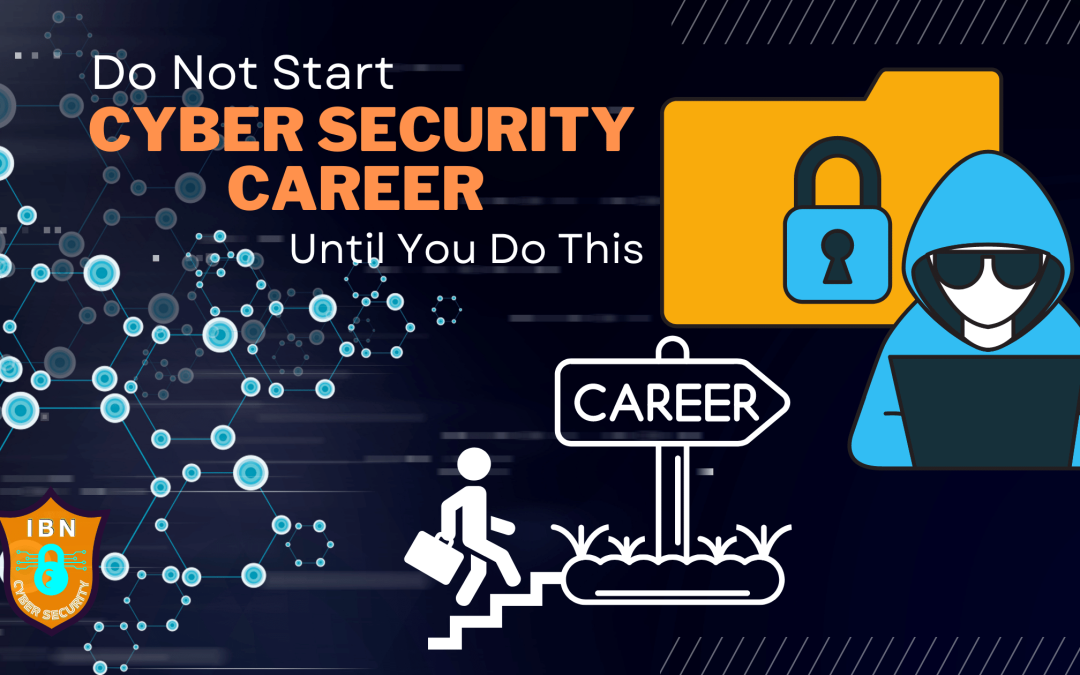Introduction
The field of cybersecurity has witnessed exponential growth in recent years, as the digital landscape continues to expand and evolve. With an increasing number of businesses and individuals relying on technology, the need for skilled cybersecurity professionals has never been greater. However, before embarking on a career in this exciting and challenging field, it is crucial to take certain steps to ensure a solid foundation for success.
The essential pre-requirements related to Windows machine fundamentals that aspiring cybersecurity professionals should address. Understanding key aspects such as events and logs, Windows security, file creation and modification dates, system restoration, retrieving deleted files, and knowledge about hard disk segmentation and file systems is vital for a comprehensive cybersecurity skill set. In this blog post, we will explore these pre-requirements in detail. Additionally, we will also need to know network fundamentals, website or web-based application framework basics, and familiarity with Linux distributions like Kali and Ubuntu as essential pre-requirements before starting a cybersecurity career.
Gain a Solid Understanding of Basic IT Concepts
Before diving into the complexities of cybersecurity, it is essential to have a strong foundation in basic IT concepts. Familiarize yourself with fundamental computer networking, operating systems, and programming languages. A comprehensive understanding of these fundamental concepts will provide a solid framework for your cybersecurity journey.
- Windows Basic
- Events and Logs: Windows operating systems generate a wide range of events and logs that contain valuable information for security analysis and incident response. Familiarize yourself with Windows Event Viewer and understand the various event types, such as security events, system events, and application events. Learn how to interpret event logs to identify potential security incidents, system errors, or unauthorized activities.
Gaining expertise in log analysis will enable you to detect anomalies, track user activities, and investigate security breaches effectively. Additionally, explore tools like Windows PowerShell for automated event log monitoring and analysis.
- Windows Security: Understanding Windows security mechanisms is crucial for identifying and mitigating potential vulnerabilities. Learn about user account management, permissions, access control lists (ACLs), and Group Policy settings. Gain knowledge of security features like Windows Defender, Windows Firewall, and BitLocker for data encryption.
Explore security best practices for securing Windows systems, including applying regular security updates, configuring strong passwords, and implementing multi-factor authentication (MFA). Familiarity with Windows security concepts and tools will help you safeguard systems against unauthorized access and protect sensitive data.
- NetwoNetwork Fundamentals
Networks form the backbone of our digital world, and understanding network fundamentals is vital for cybersecurity professionals. Familiarize yourself with concepts like IP addressing, subnetting, routing, TCP/IP protocols, firewalls, and network topologies. A strong grasp of network fundamentals will enable you to analyze network traffic, detect anomalies, and implement effective security measures.
To enhance your knowledge in this area, consider pursuing certifications such as CompTIA Network+ or Cisco Certified Network Associate (CCNA) that cover essential networking concepts and technologies.
- Website or Web-based Application Framework Basics
Websites and web-based applications are common targets for cyber attacks. Having a basic understanding of how websites and web applications function is crucial for assessing vulnerabilities and implementing appropriate security measures.
Learn about Hypertext Markup Language (HTML), Cascading Style Sheets (CSS), JavaScript, and common web development frameworks such as Django, Ruby on Rails, or Laravel. Familiarize yourself with the principles of secure coding, web application security vulnerabilities (e.g., Cross-Site Scripting, SQL Injection), and techniques for securing web-based systems.
- Must Learn Linux Distributions (Kali, Ubuntu, etc.)
Linux is a widely used operating system in the cybersecurity community due to its robust security features and extensive toolsets. Two Linux distributions that are particularly popular among cybersecurity professionals are Kali Linux and Ubuntu.
Kali Linux is a specialized distribution that comes pre-packaged with a vast collection of tools for penetration testing, vulnerability assessment, and digital forensics. Familiarize yourself with Kali Linux and its various tools, understanding how they can be used for ethical hacking, network scanning, and security analysis.
Ubuntu, on the other hand, is a versatile Linux distribution that serves as an excellent platform for learning general Linux administration and command-line operations. Understanding Ubuntu and its command-line interface will help you navigate Linux-based systems efficiently and perform essential tasks like file management, system configuration, and package management.
Pursue Relevant Education and Certifications
Cybersecurity is a rapidly evolving field, and continuous learning is paramount. Begin by obtaining a formal education in computer science, information technology, or a related field. Many universities and institutions offer specialized cybersecurity programs or courses that can provide you with the necessary knowledge and skills.
In addition to formal education, industry-recognized certifications play a crucial role in establishing your credibility and competence in the cybersecurity field. Certifications such as Certified Information Systems Security Professional (CISSP), Certified Ethical Hacker (CEH), and Certified Information Security Manager (CISM) are highly regarded and can enhance your career prospects.
Develop Practical Skills through Hands-on Experience
Theory alone is not sufficient to excel in cybersecurity. Gaining practical skills through hands-on experience is crucial. Look for opportunities to intern or work in entry-level positions in the cybersecurity domain. This will allow you to apply your knowledge in real-world scenarios, understand common threats and vulnerabilities, and develop problem-solving skills.
Engage in cybersecurity projects, participate in Capture the Flag (CTF) competitions, and contribute to open-source projects. These activities will not only help you acquire practical skills but also provide valuable networking opportunities within the cybersecurity community.
Stay Updated with the Latest Trends and Threats
Cybersecurity is a dynamic field that constantly evolves to counter emerging threats. Stay updated with the latest industry trends, new attack vectors, and evolving technologies. Follow renowned cybersecurity blogs, attend industry conferences, and join relevant forums and communities. Being aware of the latest developments will help you adapt to changing circumstances and stay one step ahead of cybercriminals.
Develop Soft Skills and an Ethical Mindset
Cybersecurity professionals not only need technical expertise but also strong soft skills. Effective communication, problem-solving abilities, teamwork, and leadership skills are essential for success in this field. As cybersecurity involves dealing with sensitive information and potential ethical dilemmas, cultivating an ethical mindset is equally important. Upholding principles such as integrity, confidentiality, and responsible disclosure is vital to maintain professional standards.
Summary
Before embarking on a cybersecurity career, it is essential to address certain pre-requirements beyond the core considerations mentioned earlier. Building a strong foundation in network fundamentals, understanding website and web-based application frameworks, and gaining familiarity with Linux distributions like Kali and Ubuntu will significantly benefit your journey as a cybersecurity professional.
By mastering these additional prerequisites, you will possess a broader skill set that allows you to analyze network traffic, secure web-based systems, and utilize powerful cybersecurity tools available in Linux distributions. Remember, continuous learning, practical experience, and a passion for staying updated with the latest industry trends are crucial elements for a successful cybersecurity career.

